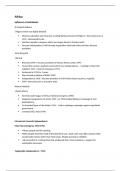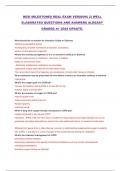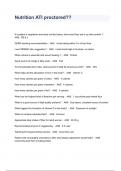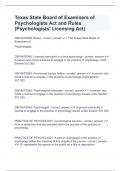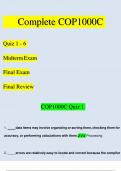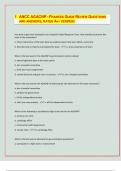Other
Notes/Summaries of events from - British Empire - History A-Level AQA (The winds of change, 1947–1967)
- Module
- Breadth study (1J)
- Institution
- AQA
Notes on events from including: -African independence -Asian independence -Events in Great Britain -The shift in popular culture within GB (acts relating to Racism, cinema, TV, decline in support for empire) -Two brief essay plans regarding popular culture and if GB were pushed out of empire...
[Show more]
